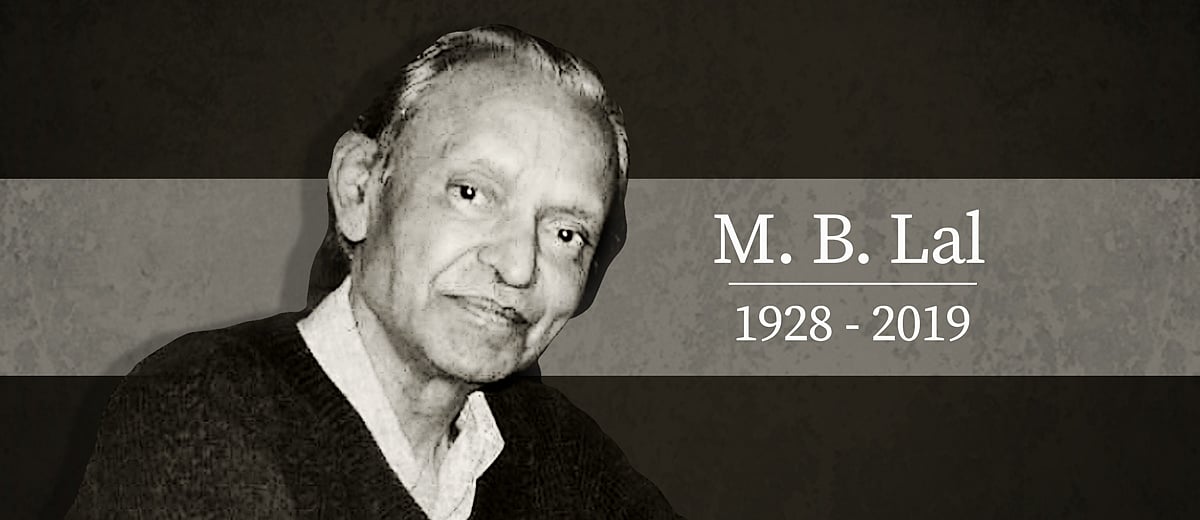A literary and editorial legacy: Anil Dharker wore many unforgettable hats
The founder of the Mumbai Lit Fest has died, aged 74.
As if it were a befitting quirk of time, Anil Dharker’s last published piece began with the job of seeing the reopening of Kitab Khana, a landmark bookstore on the ground floor of the 150-year-old Somaiya Bhavan at Mumbai’s Flora Foundation. A devastating fire had engulfed the store last year, necessitating its closure. Dharker’s glee seemed palpable for a man of letters who wrote columns and books and edited newspapers and magazines with the same finesse with which he had set up and curated the Mumbai International Literary Festival. His delight at seeing the revival of one of his favourite spots in the city has now become his parting tribute to the world of the written world.
But Dharker’s presence spread across many spheres of work. In a career spanning more than five decades, he donned many hats. His professional repertoire ranged from being an engineer, a critical writer on cinema, an advisor and head of government bodies for film certification and production, an editor of news publications, and the head of television channel networks. In the midst of all this, he also found time to write five books. Perhaps the world of the printed word proved to be the most abiding of his engagements in the last phase of his life.
After earning his degree as a mechanical engineer from the University of London, Dharker supplemented it with a specialisation in building sciences. This was why, when he returned to India, he worked with leading architectural firms in Mumbai and was credited with initiating many measures for safe building practices in the expanding urban landscape of the country. In a markedly unrelated sphere, his writings on cinema were finding an influential readership. The government of the day then made him an advisor to film certification and later the administrative director of the National Film Development Corporation – an institution which steered many important works in parallel cinema when he was heading it.
Dharker further diversified into top editorial positions in a number of news publications. He worked as the editor of the popular English weekly Illustrated Weekly of India, the Independent (a broadsheet periodical of the Times of India group), and Mid-day. His contributions as a columnist were also prolific over the years. Readers regularly encountered his insightful mind and elegant writing in columns for the Hindu, the Times of India, Mid-day, Asian Age, Deccan Chronicle, Open magazine, Khaleej Times, and Gulf News.
He also worked in the broadcast media, ranging from conducting interviews for the state-run Doordarshan to steering private TV channels like the Zee Network in a directorial capacity. In his later years, Dharker’s association with television was largely restricted to appearances as a panelist commenting on current affairs on news channels.
However, by the second decade of the present century, it was his fascination with the written word that led him to his enduring work as the founder and curator of the Mumbai Literary Festival, held every year in November, and Literature Live, held throughout the year at different locations in Mumbai.
The remarkable aplomb with which he curated the literature festival was evident in his handling of a controversy that surfaced in the 2012 edition of the meet. At the time, playwright, writer and actor Girish Karnad had, instead of speaking about his life in theatre at the festival, launched a tirade against the organisers’ decision to felicitate Nobel Laureate VS Naipaul with a lifetime achievement award. Karnad’s attack was centred on Naipaul’s remarks on the consequences of Muslim invasion on India.
Dharker grasped that activism cannot be confused with fair literary intervention, and termed Karnad’s remarks “impolite”. Before taking questions at the event, he said: “Naipaul has also written a range of extraordinary fiction. A writer’s role is to provoke, and he has the authority to criticise India if he deems necessary.”
Six years later, while recollecting the episode, Dharker told Hindustan Times about Naipaul: “I might disagree with his views but he is a giant of the literature world. He’s turning the mirror to society and the reflection is not always pleasant. It makes you feel uncomfortable but it is also expressed in the most elegant way.”
Such an eagerness to extend the realms of literary engagement perhaps ensured that the Mumbai Literature Festival found a spot on India’s literary calendar without the glitter of spectacle, star presence, or large attendance that one associates with events like the Jaipur Literature Festival.
Events aside, Dharker also took care of his own contributions to the world of letters. His five books include Man Who Talked to Machines, The Romance of Salt, and Icons: Men and Women Who Made Modern India. In Romance of Salt, he used his grasp of different strands of world history, woven with various aspects of social, cultural and political experiences, to produce an engrossing narrative on everyday objects of material life.
Dharker’s understated presence in the cultural landscape of Mumbai will endure alongside the yearlong calendar of literary conversations that he left the city. For those outside Mumbai, his wide-ranging writings and early work in urban architecture will remind them of a cultured mind who knew as much about nurturing literary conversations as he did about keeping buildings safe.
 Writer, reporter, friend, philosopher: Remembering the magic of MB Lal
Writer, reporter, friend, philosopher: Remembering the magic of MB Lal